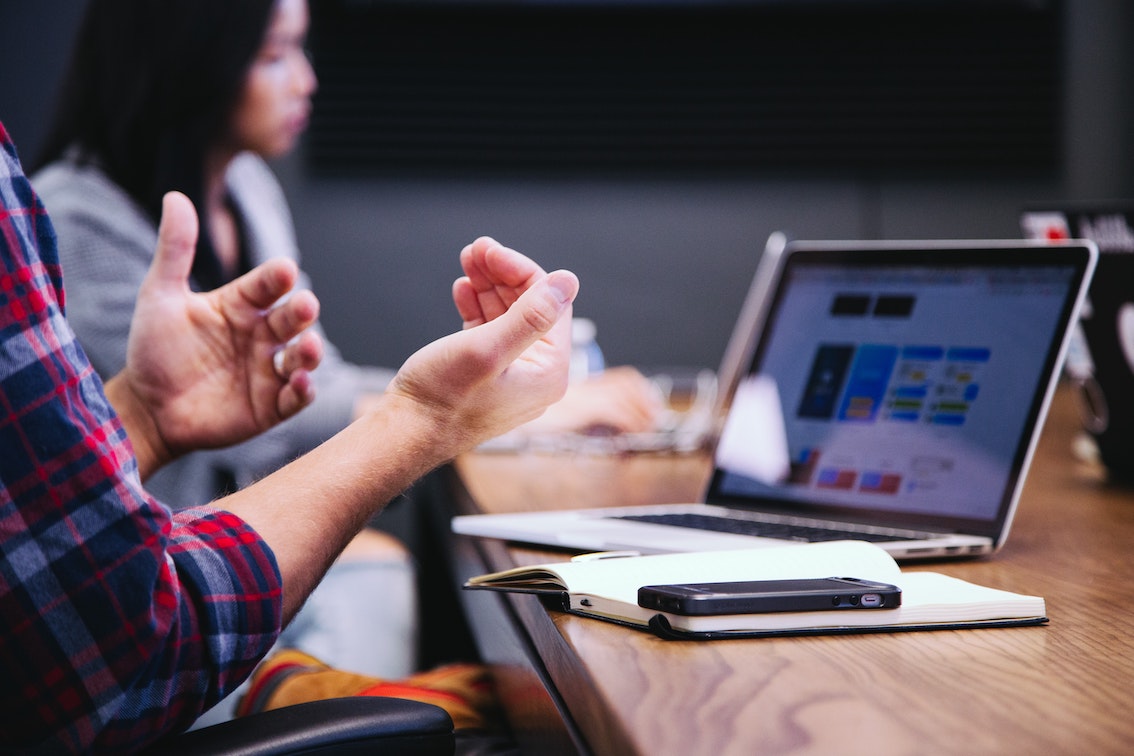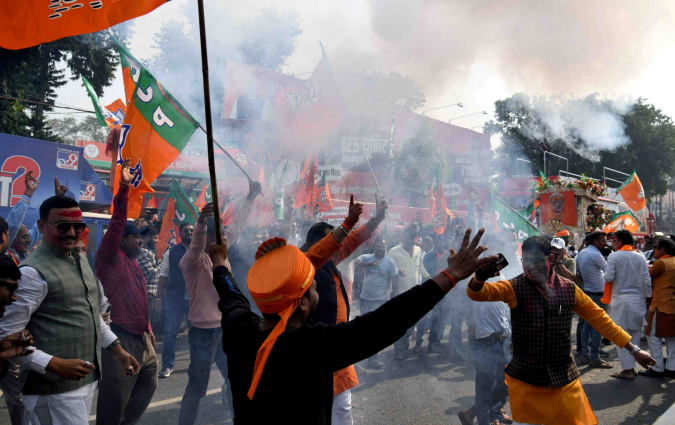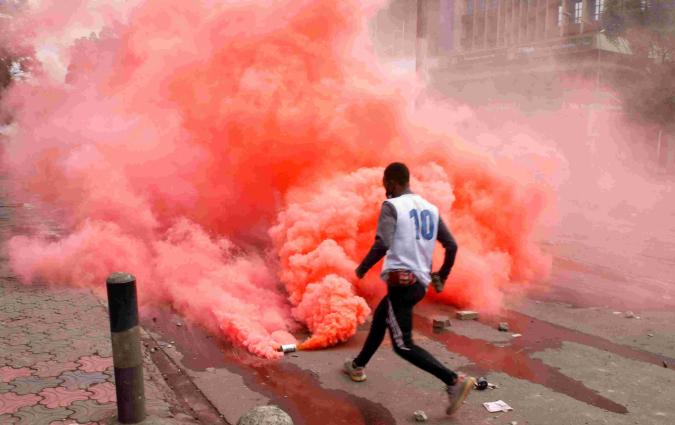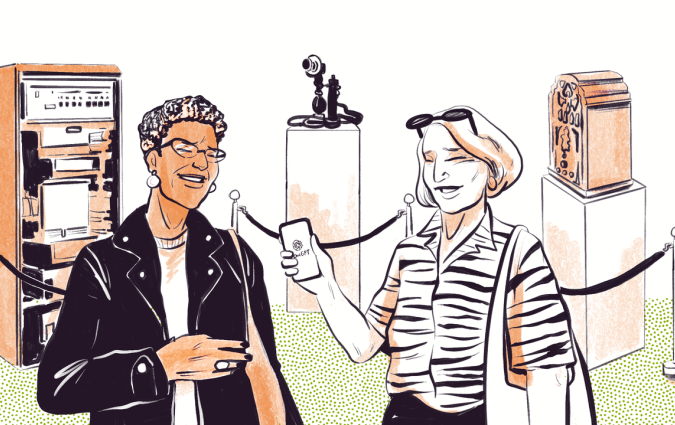Our podcast: How to engage with your audience. Why public editors still matter

Photo by Headway at Unsplash
The topic
In this episode of our podcast we look at the role of public editors. We talk to the former public editor of the Toronto Star, Kathy English about what public editors do, their role in ensuring accountability to readers, and how reader engagement via public editors has changed over the years in response to changes to the news environment and politics.
The guests
Listen to the podcast
Listen to the episode: On Apple Podcasts | On Spotify | On Google Podcasts
The transcript
On the evolution of public editors | On connecting with audiences | On how her role has changed | On reaching audiences in different ways | On feedback from readers | On relationships with journalists | On diversity in the role | On upholding standards internally
On the evolution of public editors ↑
Kathy: Well, you know, it’s a role that has a 50-year history in journalism but has never really been truly embraced at any one time since 1972 when the first positions were instituted. There have been maybe 60 public editors in the world. The position started out being called ombudsman. At some point it also became readers’ editor, public editor.
So the role is really central to accountability. It’s an accountability mechanism in journalism, a way for news audiences to have one person in the newsroom that they can go to to say, “I don't think this is right,” or, “Why did you do this?” And then that person is obligated to seek answers for that person.
On connecting with audiences ↑
Kathy: I looked at it always as there's a news literacy function to it, the part of it is explaining journalism to readers but also making the concerns of readers, of news audiences clear to the newsroom, to make sure that the newsroom isn’t always operating in what can sometimes be a little bit of an arrogant vacuum in, “We do what we do.”
This really tries to bring the reader into the process. It’s done in different ways at different news organisations, but it’s also very much a part of accuracy that people can report errors. A public editor will do corrections, will investigate things that have gone wrong.
I did the job for 13 years and I was the longest serving public editor in the news organisation that has had the role the longest time of anyone in the world, as far as I have been able to determine. And I know we have to be careful with superlatives, but I think they started the role in 1972.
On how her role has changed ↑
Kathy: So, thanks to this fellowship I’ve been able to do much more research on the history of the role, and it would seem that when it started in the early ‘70s, there was a lot of, I would characterise it almost as polite complaints. You know, certainly all these complaints about typos and spelling errors, those sorts of things have always come to new ombudsman and public editor.
But particularly since 2016, since the US election of Donald Trump, and certainly we’ve talked about this at our Organization of News Ombudsmen meetings, that the tenor of the complaints has intensified. he accusations of, “You're fake news,” have come at us all around the world. And there has been a sense that, for me, part of the role of being a public editor that’s going to be accountable to readers is helping readers understand what is real news. What are the elements of trustworthy journalism? What is it that you should hold journalists to account as a member of the audience.
Because journalists do owe their audiences, the public, something, and I think it’s important to help the public understand what they should hold us to account for.
On reaching audiences in different ways ↑
Kathy: I wrote a weekly column, but I also found Twitter to be very helpful for some of these discussions. I know it can be a cesspool sometimes but I always tweeted out all our daily corrections as a form of accountability. I did a lot of public speaking on behalf of the Toronto Star to talk about the standards, the practices, again, you know, “Here’s what you should hold us to account for. If you've got a complaint with the news organisation, here’s how you should complain. And do complain, because that’s what I’m there for.”
On feedback from readers ↑
Kathy: I have file folders full of emails from readers who said to me, “We’re glad you’re there.” In some of the toughest columns where you really have to say, “Here’s how this newsroom screwed up on this particular thing.” Those were the ones that people readers seem to like the best.
And I think that because we tell them as journalists that we hold others to account, they were really grateful that somebody inside the newsroom was holding the newsroom to account. And I think that’s how I looked at the role, that I had to be a journalist of the newsroom, reporting on the newsroom when something went wrong, reporting why did it go wrong. Is there something systemic here, you know, who needs to take responsibility here?
On relationships with journalists ↑
Kathy: When ombudsmen get together at their conferences, it’s always sort of called the, we say it’s like we do the loneliest job in journalism. And I used to sort of say somebody was always cross with me, if it wasn’t a member of the public who didn't really like the way I had adjudicated something, or something in the newsroom.
I mean, I don't think it’s any secret to anywhere anyone, as I’ve been doing more research on accountability I see it’s quite universal that there is a lot of defensiveness in journalism, and nobody likes to be held to account for their mistakes, or even be questioned before it’s determined that there's a mistake.
But I do feel that within the newsroom I worked in, because there was such a tradition of the role, that it was supported at the highest levels of the board, that there was a respect and a sense that, yes, we do owe readers something.
So there would be individual journalists that would get very cross with me, but generally I feel it was well received. And the most rewarding thing is for me, I did a lot of training with interns on accuracy, ethics, and the rewarding things for me would be when people would come to me with their ethical dilemmas and want to talk it through and sort of determine what is the right course of action here.
On diversity in the role ↑
Kathy: The research and my anecdotal information says that it’s a role that generally goes to someone with more than 30 years’ experience as a reporter and an editor. Very often, probably in the first 20 years of that role, that was a white man who had put in his time in the newsroom, achieved some measure of dignity and success, and it was a last role.
I think my first ombudsman conference was in 2007. We were at the Nieman Foundation at Harvard, which was also a great privilege. But at that point there were 3 new public editor and ombudsmen, and all of us were women in our 40s. And I think that there was a sense that something was changing.
I don't think it’s changed a lot, and that’s one of the things that I want to look at is, one of the things we talk a lot about, thanks to you and fellowship, is who has a seat at the table, whose voice is heard and ... You know, this is a role about holding judgements about what is trustworthy, responsibility journalism, so you sort of have to look at who is the person, and there's as much a need for diversity within this role, within any accountability, as there is in every newsroom I’ve ever worked in.
On upholding standards internally ↑
Kathy: The Toronto Star has in fact just appointed someone they call an internal ombud. She is not going to be reporting to the readers but she is working within the newsroom to give other journalists someone to go to when they have concerns about something that might be racist or not aligned with the goals of inclusivity. That was just launched in September, so I’m watching that closely and we’ll talk to her.
But I could see something like that, you know, someone, a journalist of colour who has earned respect for as being a journalist because you have to know your journalism, but who’s also open to understanding that journalism does evolve. And I was talking to this woman recently for my research, and she informed me that the Star, since I’ve left in July, has decided to even look at the journalistic standards through an anti-oppression lens.
So that’s something that she has brought to the table, and I guess that’s what I would call for is, you know, how do we have more of those discussions.
I was happy our ombudsman group did a Zoom a couple of weeks ago with Tom Rosenstiel, co-author of The Elements of Journalism, and we had a whole discussion on this whole issue on what is impartiality in journalism and how does that work with a job where you are supposed to uphold, I think they called it objectivity – but how your job is meant to uphold it.
A lot of ombudsmen do come from public broadcasting because they seem to have the best budgets and, obviously, the most need for accountability. So that’s a real question within public broadcasting.
Listen to other episodes
- How 2020 is changing newsrooms worldwide. Rasmus Nielsen in conversation with Federica Cherubini.
- How the BBC deals with disinformation. Meera Selva in conversation with Rebecca Skippage.
- Who are the most vulnerable to COVID-19 misinformation. Federica Cherubini in conversation with Richard Fletcher and Rasmus Nielsen.






